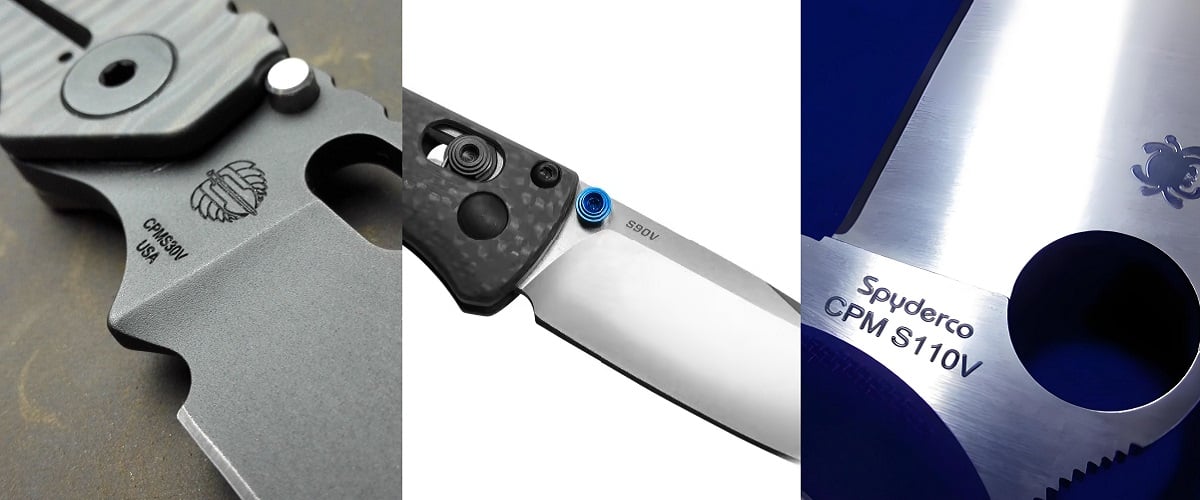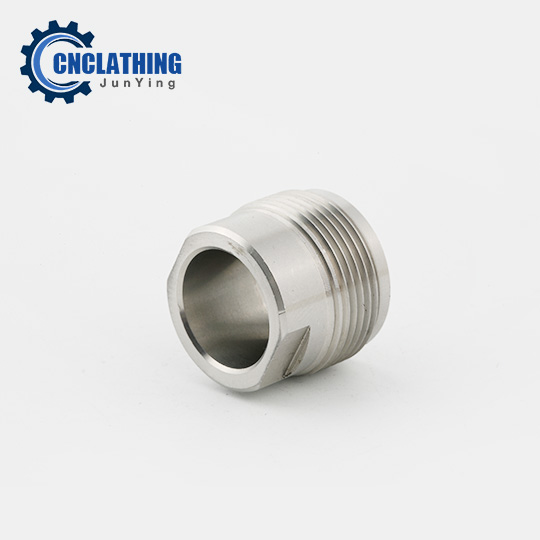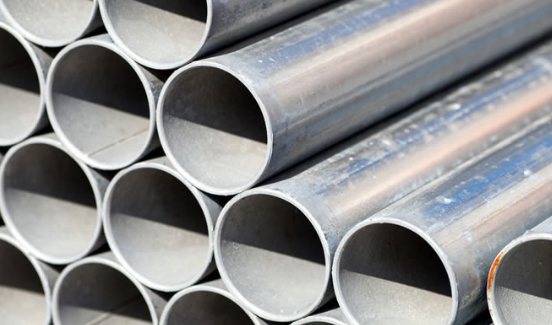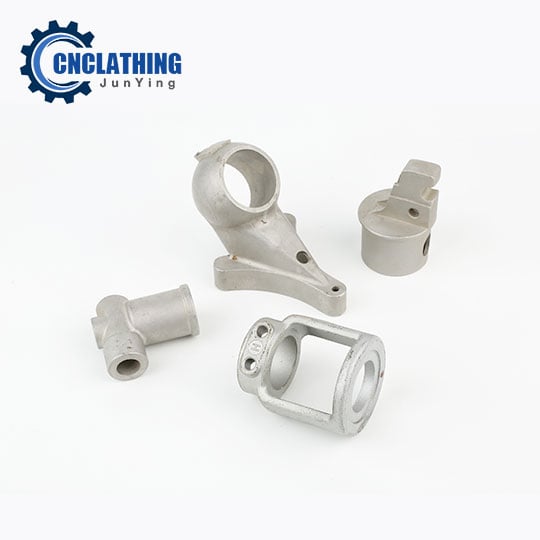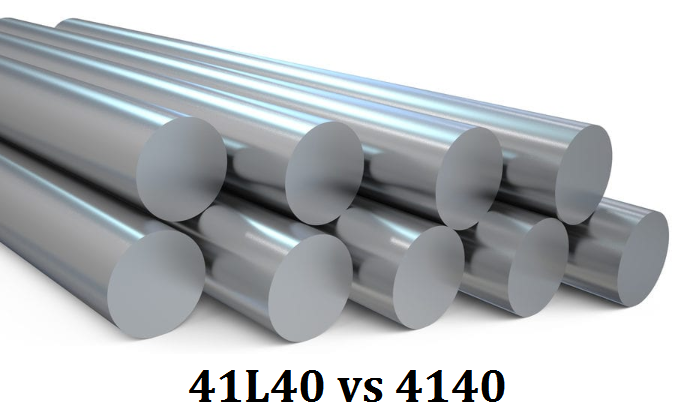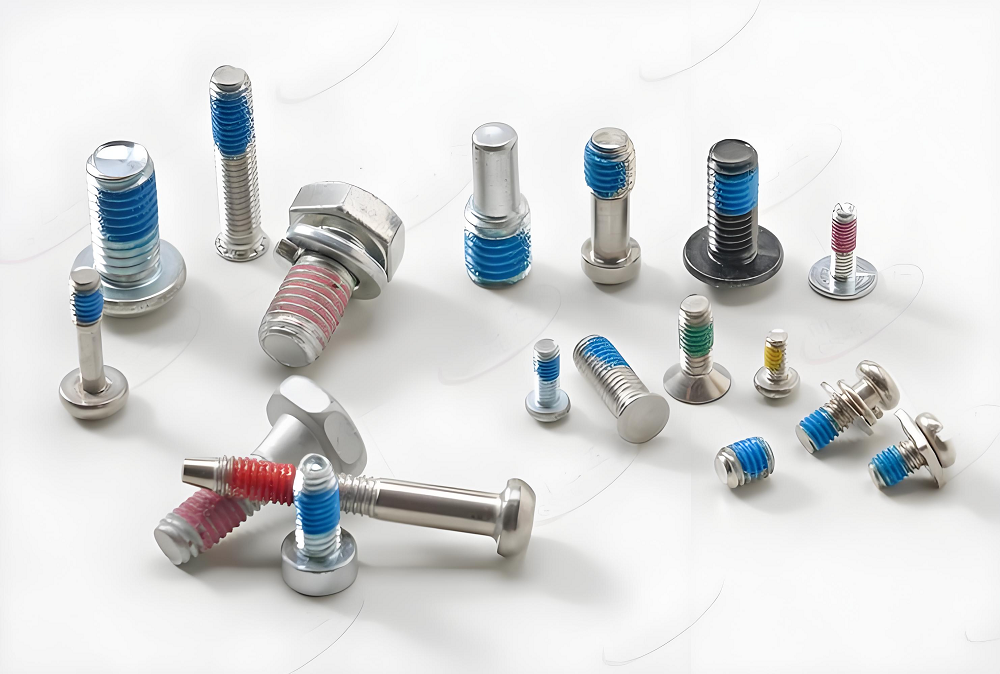Before you purchase the P20 steel products, it is better to know more about this alloy. This article will break down the P20 tool steel material with its definition, specification standard, equivalents, composition, properties, applications, and comparisons of P20 with 4140 steel and H13 steel.
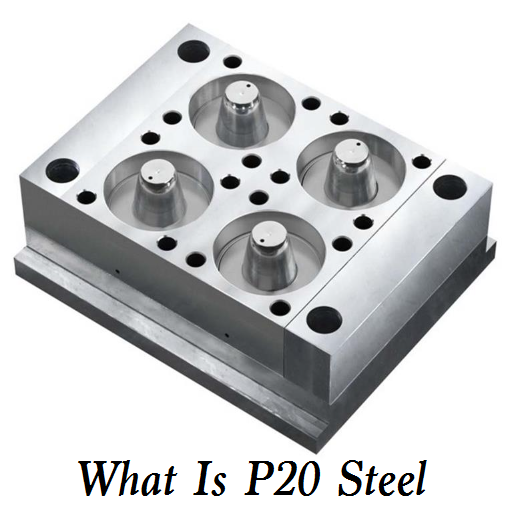
What Is P20 Steel?
P20, also known as AISI P20, is a tool steel that is widely used in the manufacturing of plastic molds and die casting molds. P20 steel is usually supplied in a pre-hardened state with a hardness range of HRC28-33, which allows it to be directly used for mold making without further heat treatment. P20 mold steel has good machinability and can be processed through cutting, forging, heat treatment, and machining while maintaining good dimensional stability and surface quality, and is also suitable for polishing and etching.
P20 material is available in round or square bars, flat plates, and metal sheets.
P20 Steel Equivalents
The steel grades are specified in different ways in each standard. AISI P20 (USA) tool steel is equivalent to DIN 1.2311 (German), GB/T 3Cr2Mo (China), and UNS T51620 (North America).
P20 Steel Machinability
Assuming 1 percent carbon tool steel comes with a rating of 100, the pre-hardened P20 steel has a machinability rating of 65.
P20 Steel Heat Treatment
- Pre-hardening: When used as a material for large molds, the pre-hardening heat treatment system for P20 steel involves heating and quenching at 830-860 ℃.
- Quenching: The quenching temperature range is roughly between 820~890 ℃, with 850~880 ℃ being commonly recommended.
- Tempering: The tempering temperature range is roughly between 500~640 ℃, with 540~640 ℃ being commonly recommended.
- Annealing: The annealing temperature is 850 ℃, with a holding time of 2-4 hours. The isothermal temperature is 720 ℃, with a holding time of 4-6 hours. The furnace is cooled to 500 ℃, and then air-cooled.
P20 Steel Chemical Composition
The composition of P20 steel varies slightly among different standards.
- P20/3Cr2Mo
| Element |
Content (%) |
| Fe | 95.2-98.5 |
| C | 0.28-0.40 |
| Si | 0.20-0.80 |
| Mn | 0.60-1.00 |
| Cr | 1.40-2.00 |
| Mo | 0.30-0.55 |
| P | 0.03 |
| S | 0.03 |
- DIN 1.2311
| Element | Content (%) |
| Fe | Remainder |
| C | 0.35-0.45 |
| Si | 0.20-0.40 |
| Mn | 1.30-1.60 |
| Cr | 1.80-2.10 |
| Mo | 0.15-0.25 |
| P | 0.03 |
| S | 0.03 |
P20 Steel Material Properties (Physical, Thermal & Mechanical Properties)
P20 is a chrome-moly alloy, and it has long been the steel of choice for pre-hardened mold steels. Below are the properties of P20 tool steel.
| Properties | Values |
| Density | 7.85 g/cc (0.284 lb/in) |
| Hardness | 300 Brinell (30 Rockwell C) |
| Ultimate Tensile Strength | 965-1030 MPa (140000-150000 psi) |
| Yield Tensile Strength | 827-862 MPa (120000-125000 psi) |
| Elongation at Break | 20 % |
| Modulus of Elasticity | 205 GPa (29700 ksi) |
| Compressive Strength | 862 MPa (125000 psi) |
| Thermal Conductivity | 29.0-34.0 W/m-K (201-236 BTU-in/hr-ft²-°F) |
| Thermal Expansion (20 ºC) | 12.8 x 10^-6/ºC |
P20 Steel Hardness
Tempering will change the hardness of P20 steel, and it does so in a very predictable way: every 100 °C increase in tempering temperature drops hardness by roughly 2–4 HRC points. The higher the tempering temperature, the softer the steel becomes.
| Tempering Temperature (°C) | Hardness (HRC) |
|---|---|
| 100 °C | 51 |
| 200 °C | 50 |
| 300 °C | 48 |
| 400 °C | 46 |
| 500 °C | 42 |
| 600 °C | 36 |
P20 Steel vs 4140: What Are the Differences?
A basic comparison between 4140 steel and P20 clearly shows their differences.
1. Chemical Composition
| Elements | 4140 | P20 |
| Fe | 96.8-97.8 | 95.2-98.5 |
| C | 0.38-0.43 | 0.28-0.40 |
| Mn | 0.75-1.00 | 0.60-1.00 |
| P | 0.035 | 0.03 |
| S | 0.040 | 0.03 |
| Si | 0.15-0.35 | 0.20-0.80 |
| Cr | 0.8-1.10 | 1.40-2.00 |
| Mo | 0.15-0.25 | 0.30-0.55 |
| Cu | 0 | 0-0.25 |
2. Standard
P20 Steel is indicated in the ASTM A681 specification, which is applied for tool steels, while 4140 steel is covered in the ASTM A29 standard for Steel Bars, Carbon and Alloy, and Hot-Wrought.
3. Properties
| Properties | 4140 | P20 |
| Ultimate Tensile Strength (MPa) | 690 to 1080 | 540 to 1050 |
| Latent Heat of Fusion (J/g) | 250 | 260 |
| Thermal Conductivity (W/m-K) | 43 | 45 |
| Thermal Expansion (µm/m-K) | 13 | 12 |
| Electrical Conductivity (Equal Volume, % IACS) | 7.3 | 7.4 |
| Electrical Conductivity (Equal Weight, % IACS) | 8.4 | 8.5 |
| Thermal Shock Resistance (points) | 20 to 32 | 18 to 35 |
4. Cost
4140 steel is generally cheaper than P20 steel.
5. Applications
- P20 steel is mainly used for plastic molding and zinc die casting molds and can be quenched and tempered to achieve a good balance between hardness and toughness, which is beneficial for mold manufacturing.
- 4140 steel is best suited for various mechanical applications that require high strength and toughness. It is usually used for components such as gears, shafts, and bolts where hardness and wear resistance are needed.
P20 vs H13 Tool Steel: What Are the Differences?
H13 is another tool steel. Below is a chart comparing the differences between P20 and H13.
| Difference | P20 Tool Steel | H13 Tool Steel |
|---|---|---|
| Type | Low-alloy, pre-hardened plastic mold steel | Chromium-molybdenum hot-work tool steel |
| Hardness | 28-34 HRC (pre-hardened) | 44-52 HRC (after heat treatment) |
| Primary Applications | Injection molds, blow molds, die-casting molds (low-temp alloys), extrusion tooling | Hot-working tools such as die-casting molds (high-temp alloys), forging dies, extrusion dies |
| Machinability | Excellent machinability, can be machined easily without further heat treatment | More difficult to machine due to high hardness, requires specialized tooling |
| Heat Resistance | Moderate, not suited for high-temperature applications | Superior heat resistance, maintains hardness and toughness at elevated temperatures |
| Wear Resistance | Moderate wear resistance | High wear resistance and thermal fatigue resistance |
| Toughness & Ductility | Good toughness, elongation ~20%, easier to shape | Very high toughness, elongation ~10-15%, more resistant to cracking under thermal stress |
| Thermal Properties | Higher thermal conductivity and thermal expansion (~11.7 µm/m°C) | Lower thermal conductivity but excellent resistance to thermal fatigue and heat checking |
| Composition | Lower alloy content: ~1.4-2% Cr, 0.3-0.55% Mo, no Vanadium, contains 0.85-1.15% Ni for toughness | Higher alloy content: ~5% Cr, 1.1-1.75% Mo, 0.8-1.2% V, providing enhanced hardness, wear, and heat resistance |
| Heat Treatment | Supplied pre-hardened, usually no need for further heat treatment | Requires air hardening or quenching and tempering to develop properties |
| Surface Finish | Highly polishable, ideal for detailed molds and aesthetic parts | Good polishability, but priority is on durability under thermal cycling |
| Cost & Production | More economical due to easier machining and no post-machining heat treatment | Higher initial costs due to complex heat treatment and machining challenges, but longer tool life in demanding environments |
| Corrosion Resistance | Moderate; requires maintenance to prevent rust | Better resistance due to higher chromium content |
| Suitability for Cold Work | Used mainly for plastic molds and low-temp die casting | Not ideal for cold work; designed for hot work |
| Typical Industries | Plastics, automotive interiors, consumer electronics molds | Aerospace, die casting of aluminum and steel, forging, and extrusion |
When it comes to the selection between H13 and P20 mold steels, H13 steel significantly outperforms P20 in high-temperature environments, so it is more suitable for hot work, including die casting, forging, and extrusion. Because P20 is easier and cheaper to machine, it is often used to make plastic injection molds and cold working molds.


